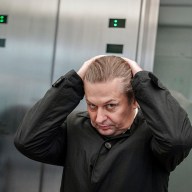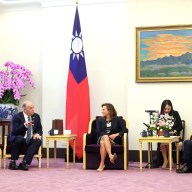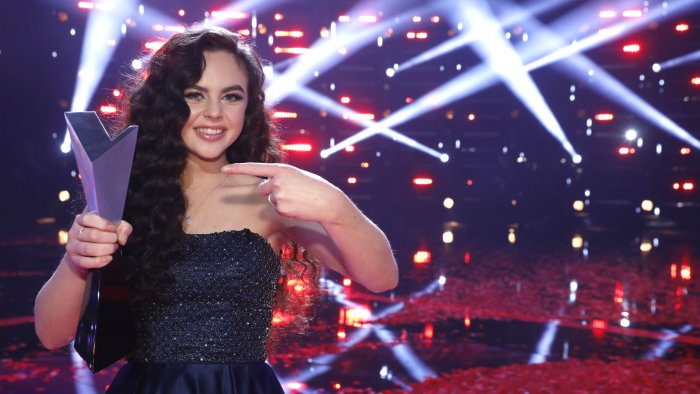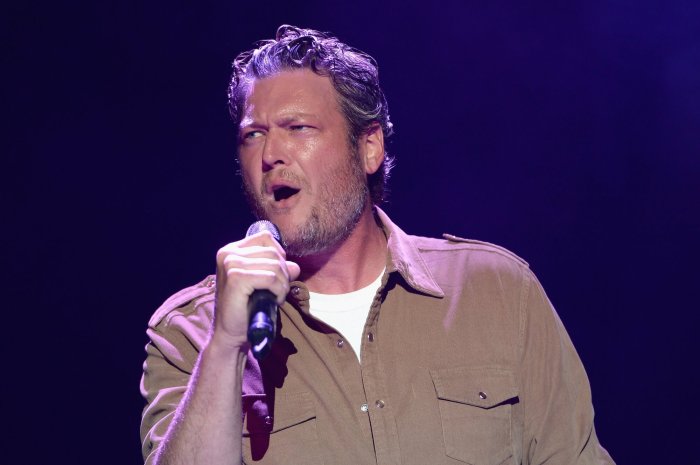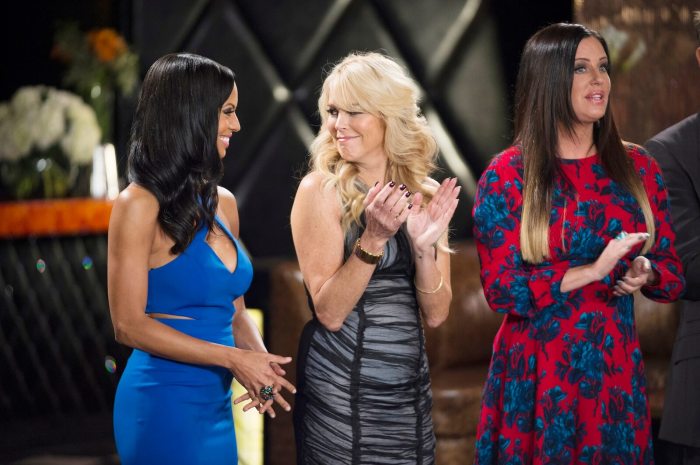Tell us about your musical background.
When I was growing up I wasn’t really involved in music, all I really wanted to do was hang out with my buddies. I was a skater for a long time. After I got bored of skating I decided to put a garage band together. Since my father was a professional drummer in Hungary, and like all kids I wanted to be like my father, I started to play the drums. We started fooling around with everything from punk music to classic rock; we did a lot of Van Halen and stuff like that. When I moved to Hungary when I was 16, I still didn’t sing, I was still a drummer and I was still in a garage band and we had a few gigs. One of the rehearsals the singer got sick, and I think the bass player said, “Vik, why don’t you try singing, because you’re always humming around.” And I said okay, I’ll try one song, and the rest of the band said “Okay, you’re going to be the singer from now on.” It was a surprising Phil Collins type of thing. Once I started singing and I got a little bit better I fell in love with R&B and soul music. That’s when I fell in love with music, and I started writing music and people started listening more. And then I won a show in Hungary, and things have been up ever since then. What was the show in Hungary?
It was called “Megastar.” It was a similar talent show; there were very different rules. They weren’t really interested in if you were a soul singer; they were interested in any genre. So I had to sing everything from rock music to classical music. It was kind of weird, but it was good experience. I felt that I was still amateur in the sense that I didn’t know who I am musically so after the show I started really digging into composing music and ever since then I’ve been doing well in Hungary but I was always afraid to try in America. What’s the biggest difference you’ve noticed between Hungarian and American audiences?
I have to really compliment the American audience, they’re so much more open to new things, new ideas, new people. What I’ve come to realize that, Hungary in a way, it’s a small country, you know there’s only 10 million people in the country, and they’re no that open. It takes time for them to really digest something new. It took me years to recognized in Hungary because I’m an English-speaking artist in a Hungarian-speaking country, so it took years for them to accept me. In America, after blind audition, it took them one day. So it was crazy. What has had a bigger influence on you as a musician, your upbringing in New York, or your formative years in Hungary?
I don’t even know if I can answer that. I think it’s my sister to be honest. She’s an amazing singer, and she heard me sing, and she was like “Alright Vik, I’ll teach, I’ll show you music,” and she was the reason why I started listening to R&B and soul music, and she basically pampered me through this whole situation. What made you choose Adam Levine?
I was almost 100 percent sure that I was going to pick Pharell Williams. I write music also, and the reason I started singing was because I was writing and it was working. So for me to pick Pharell was just the obvious logical choice. But I went out on stage and sang my song, and I was amazed that he was so enthusiastic and so excited after hearing me on stage. He really put passion and emotion into the whole process of it and I was just mind-boggled, I was like I can’t believe Adam Levine is saying these things about me, you know. And I thought that Adam is the kind of person who can really help me in the future and in the moment. He’s a really emotional singer, he really loves what he’s doing and you can tell he loves it so I was like you know, right now my best choice is to go with Adam Levine. What would you say in your biggest challenge as a singer?
I have a big lack of self-confidence. I don’t know why. My sister was the person who actually pushed me to audition for The Voice. I was like, I don’t want to audition, what if I fail, what if I don’t do well, I don’t believe in myself that much. In New York every other singer sings just as good as me, you know? That’s how I go living my days. But I have my sister, and my family behind me saying no, you’re better than that and you have to go try yourself. So I really have to learn how to respect what I have, and just try to build my self-confidence. I’m really hoping Adam is going to teach me these traits to build self-confidence on the stage, because when I look at Adam I see he has that healthy confidence, not the bored, the healthy confidence. You’re a very talented singer, with a very nice head of hair too, what’s your secret behind the hair?
That’s so funny because everyone always say, he’s the guy with perfect hair but I don’t even spend that much time on it when I’m getting ready in the morning. I don’t know, I guess I’m lucky with the head of hair. So tell me a little about who you are and what your musical background is, I hear you’re from Brooklyn, tell me about that.
I live in Greenpoint, Brooklyn. I jumped right into the city straight after I graduated college in Swarthmore, Penn. and I knew straightaway that I wanted to keep pursuing music. So, ever since then I’ve been making small steps to pursue a career in music. I’ve been playing small clubs in the city and chipping away at recording songs and constantly writing and then I came across this crazy, crazy opportunity. How did music find it’s way into your life?
Music has always been a big part of my life, but it somehow became a secret passion of mine. When I was a kid I was always making up songs and the busier I got the more I felt like I had to hide it. It just became a secret passion. What about New York inspires you to be a musician?
The first time I really felt the power of this city was the first time I ever got on the Highline. They had just opened it up, and I was walking around, and it wasn’t super popular because not many people knew about it, but I was walking on that raised railroad track with all of these people, and looking at all of these people from all over the world just feeling that unique energy of everyone coming from a different place, and everyone has these different passions and yet they’re walking on this weird bridge in this city with huge buildings surrounding them. That was the first moment that I felt like that’s where I belonged. I loved being in the middle of an environment like that. You were compared to Norah Jones in your audition. Who inspires you musically?
I’ve gotten that quite a lot over the last few years. As much I respect who she is I wouldn’t say she’s one of my biggest influencers. I love her stuff, but I’m actually going in a different direction than the stuff that she went. I totally get the comparison. Some of my biggest musical influences span from the old classic crooners from the past, like Frank Sinatra and Ella Fitzgerald into soul music, and those amazing musicians from what I consider the golden age of music. But also growing up I listened to, my dad was really into bluegrass, and I love the soul that’s inherent in bluegrass music. My influences span across a lot of different time periods and genres and what I want is to create my own little recipe that nods a head to every single one of them. When you went in, you probably had a judge in mind, who did you think you were going to pick, and who did you actually pick?
Going in I actually thought I was going to pick Pharell, just because he’s a producer and a songwriter, he’s like a triple threat. Someone like him has such a wide scope of vision for music, and I though he would just understand me and what I wanted to do. Once I was up there, in the middle of being blown away by the fact that three of them turned around, and Gwen started talking. Gwen is just the coolest lady on the planet, and the things she was saying about knowing what it’s like to struggle especially as a female artist in a boy’s world and all that she was offering in terms of her ability to just help me grow through this process. I really thought I was going to say Gwen and then at the last possible moment I fell back on what I knew deep down which was that I wanted to work with Pharell. I kind of blacked out. What would you say in your weakness or challenge on the show?
About two years ago I lost my voice, and I had a vocal polyp which is I believe the same thing Adele and John Mayer. I was faced with this decision of whether or not to get this surgery and about a week before I was supposed to have this surgery I backed out and while I did have this crutch and I still have this today, I wanted to work really hard and work around it. It’s been this kind of thorn in my side to live with, but I look at is a kind of blessing in disguise, because of that I had to learn so much more about my voice and singing in general, and I think it’s added to my unique sound. I have to be extra careful about wearing out, and I have to be careful about how I speak and I definitely know that’s a weakness of mine. Tell us a bit your musical background.
Since I was younger my parents always used to play these different types of music. The main thing that really stuck out to me even when I was like a toddler was rock music like Journey, Pat Benatar, all that stuff like that. I would always find myself nodding my head to it. When I was three I actually sang at a talent show at my camp. That was the firs time I had ever sang out in public. It wasn’t until a few years later, when I was 12, when I joined my first band — it was called “Dead End.” We performed things from classic rock, heavy 80s, stuff like that.
Who inspires you now musically?
I’m still inspired by Pat Benatar and Joan Jett, but now if I were to take on a more modern role model by biggest inspiration would definitely be Haley Williams from Paramore. I’ve seen her like 11 times live! I’m completely obsessed. What are you up to now? Are you in school?
Currently I’m enrolled at Mercy College but I’m going part-time just because of this whole madness between the show and things like that.
If I continued school I would go toward the studio engineering route. I have a home studio so it’s just something I’m comfortable with. I would love to have a job doing something that I love everyday. How does it feel to be so young in this competition?
It’s kind of intimidating at points but then I feel like it also could help me just because I have so much time to develop, so much time to grow. If I’ve only made it this far at this age I’m super excited to see what the future holds. Now I can have like years to continue and pursue a dream. What do you think is your biggest weakness as a contestant?
I think my biggest weakness as a contestant is my genre in general. Its not a common one you see in my age. The genre I’m taking on is definitely a big risk for my age because it’s just not something that you see everyday.






